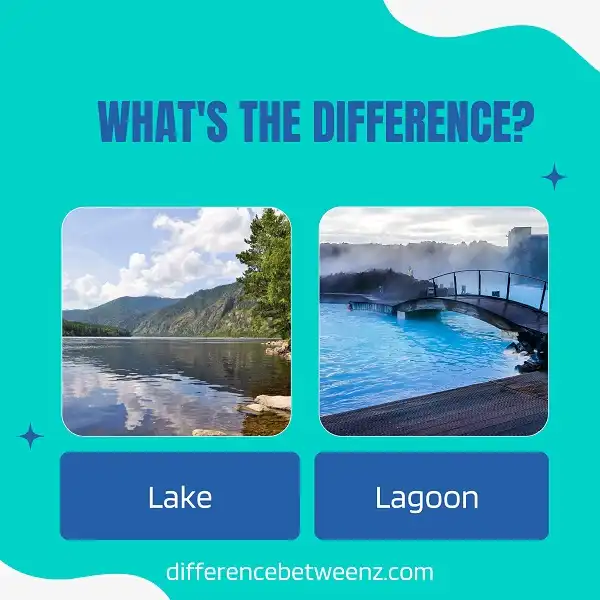Lake vs. Lagoon
What is Difference between lake and lagoon? Water is essential for life and appears in various forms on our planet: there is fresh water, warm, salty, sweet … there are bodies of water completely surrounded by earth, long, narrow, wide, round; in short, of all kinds. As you can see, there are many types of bodies of water and we know that lakes are included among them. However, there are other bodies called lagoons, which have some resemblance to the lakes; but which are different from these. Next we will clarify what is the difference between lagoon and lake.
Lake
The depth can be considered as the element that contributes most to differentiate the lakes from the lagoons, the first ones are much deeper; since as we saw earlier, the lagoons are superficial. The lakes are far from the oceans and seas. They are found in all parts of the world and some can be provoked by the human being. Most of the lakes are fresh water.
Lagoon
A lagoon is a body of water that forms near the coastal zones. It is superficial and has a small connection with the sea; although also it is separated of this one thanks to the reefs and the sand banks.
Water from the lagoons can be transported to the oceans and ocean water can also cross the barriers and enter the lagoons. Being surface water bodies, there are many factors that affect salinity and temperature of the same; this same element (of shallow depth) also influences its evaporation and precipitation.
Some lagoons connect with the oceans through a long and narrow channel. In addition, its size is usually much smaller than that of lakes. As sometimes the barriers protect them and do not get mixed with sea water, there are lagoons in the shape freshwater. Similarly, because they are shallow, lagoons can house certain plants within them.
Key differences between Lake and Lagoon
- The lagoons are shallow and are generally connected to the sea or the ocean, while the lakes are deeper and connect with rivers or streams (not near the sea).
- Almost always the lagoons are salt water, while the lakes are usually freshwater.
- In the world there are more lakes than lagoons.
- Within the lagoons some plants can grow, but in the case of lakes, they can only grow on the banks of the lakes. A lake is a body of water surrounded by earth on all sides, except for the part by which it is fed by a river, stream or any other body.


